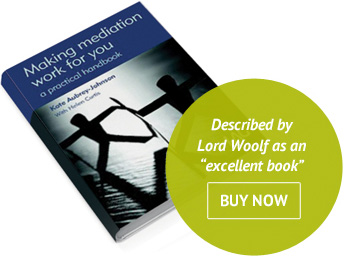BLOG
Mediation Values in Citizen-State Disputes
February 28, 2020

Margaret Doyle is a SEND-accredited mediator and a Visiting Research Fellow with the University of Essex School of Law and is our guest blogger for February 2020.
I mediate in disputes between families and schools and local authorities involving support for special educational needs and disabilities (SEND). This falls within the arena of administrative justice – the interactions between individuals and communities and state institutions – and in this context of citizen grievance,mediation is not a cheap and fast alternative to litigation. To portray it that way diminishes the promise that mediation holds to humanise state bureaucracy and reposition the citizen-state relationship as one of mutual and shared rights and obligations. In this context, rather than a focus on settlement, mediation’s values should be underpinned by reciprocity and recognition, and linked closely with the ways that we embed social rights in our everyday interactions.
This is one of the premises of our book, Reimagining Administrative Justice: Human rights in small places (Palgrave 2019), in which my co-author Nick O’Brien and I propose a realignment of administrative justice and human rights, and specifically social rights, as a means of fostering more sustainable and democratic responses to citizen grievance. I am a mediator; he is a tribunal judge. Together we see what increasingly resembles a busy assembly line of complaints and appeals that is costly in human and financial terms without evidence of sustainable improvement. We consider how mediators, ombuds and tribunals can work in a complementary, not competitive, way. We challenge the orthodoxies of administrative justice that prioritise the individual user, a well-oiled system, and closure by ‘resolution’. In their place, we set out alternative orthodoxies of community and collective interest, a loosely woven network, and open-ended and deliberative process.
In the book we consider SEND in England as a case study to describe the unique role that mediation plays in disputes that involve collective interests and social rights, multiple parties, state accountability, and close alliances between institutions. This is a complex and multi-faceted landscape, with a range of complaint mechanisms for different types of disputes operated by different public bodies and private actors (schools, local authorities, Secretary of State, the NHS, Ofsted, the SEND Tribunal, SEND-accredited mediators, the Local Government and Social Care Ombudsman, judicial review). It is an area in which trust, and the lack of it, underpins many of the grievances, complaints and appeals that arise, and in which resources are under severe strain. Most important, it is an area in which, for the children and young people requiring support, what matters most is effective co-working. Relationships are key.
In the SEND context the impetus for mediation is usually a challenge to a specific local authority decision that can be appealed to the Tribunal, but in reality the mediation encompasses a multiplicity of issues that go beyond the grounds for appeal, reflecting the ongoing relationship between families and the schools and local government. It is not only the interests and needs of the parties attending that have to be taken into account. Collective interests are inherent in the duties that local authority SEND teams have for accounting for use of public funds, in schools’ needs to be supported, and in the needs of all pupils in the community to have access to appropriate education. Mediation as a means of democratic co-design offers the promise of addressing both individual and collective needs; it is essentially about connection, and it embraces conflict as a positive force for change. In that way, it allows for many voices to be heard.
Our book explores mediation techniques and their potential place as part of a networked and loosely woven administrative justice fabric. The use of the senses is important – looking, listening, even touching, where that suggests empathy and a common humanity that recognises the interdependence of citizen-state relationships. Mediation and other so-called extrajudicial institutions of administrative justice are not about policing bad behaviour but about promoting good behaviour on behalf of the community, including good administration. They are therefore well suited to restoring the humanity in bureaucracy, to ensuring that the way we touch the state, and it touches us, is constructive, not destructive.
Mediation in this sense is therefore more than mere dispute resolution or the creation of a safe space for negotiated justice. It becomes instead a technique for allowing citizens’ voices to be heard, for constructing bridge-building dialogue and for the restoration of relationships that are public and institutional rather than private and personal.
For more on the book and its reimagining of mediation as a resource for citizen grievance, see this longer blog post.
Margaret Doyle’s project report on young people’s participation in SEND mediation was held at Garden Court Chambers in June 2019.

